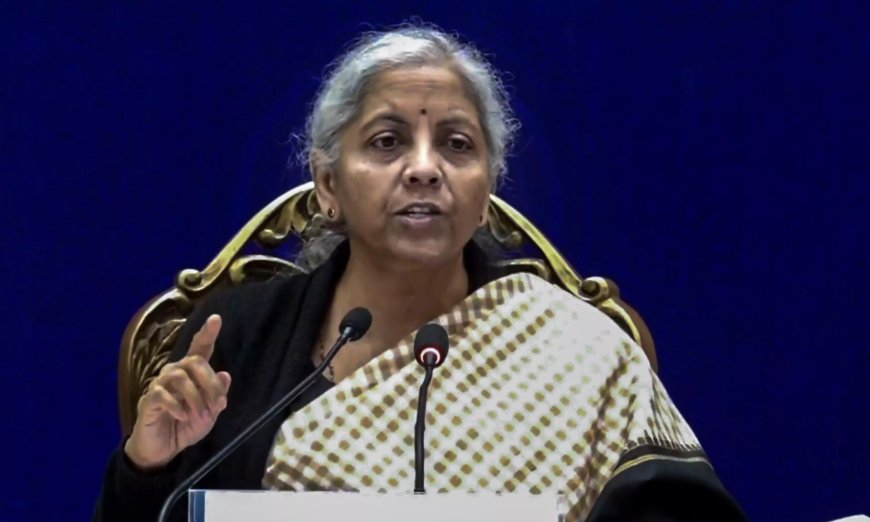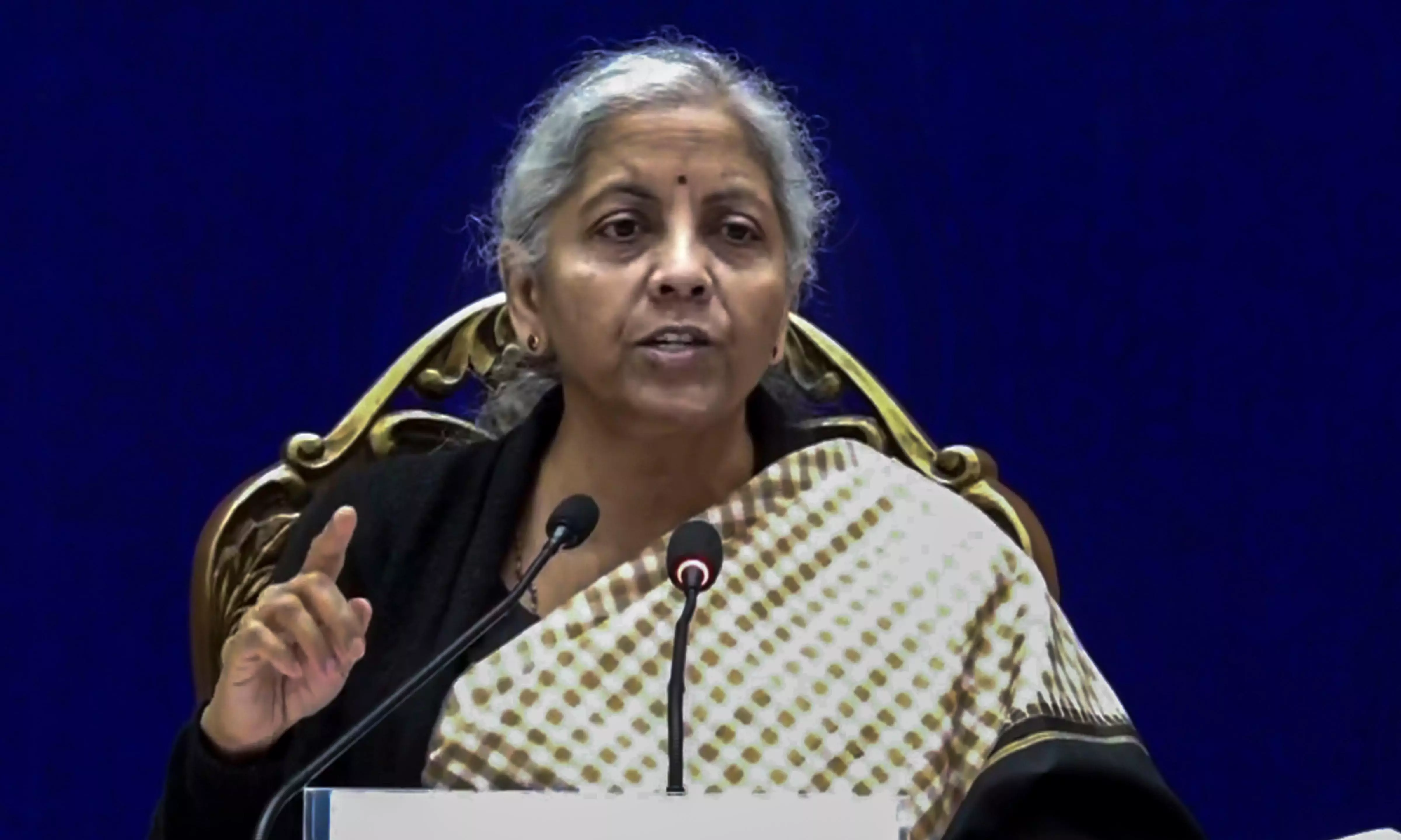Sustaining Growth Requires Deeper Commitment From All Economic Stakeholders: Finance Ministry
New Delhi: The finance ministry on Thursday said that sustaining growth would require a deeper commitment from all economic stakeholders as newer uncertainties mostly driven by global factors have emerged. The statement comes at a time when India recorded a moderation in gross domestic product GDP growth to 5.4 per cent for the second quarter ended September 2024. “After a moderation in Q2 of FY25, the outlook for Q3 appears bright, as reflected in the performance of High-Frequency Indicators (HFIs) for October and November 2024. An increase in minimum support price (MSP) for rabi crops, high reservoir level and adequate fertiliser availability bodes well for rabi sowing,” said its monthly economic review for November, adding that industrial activity is likely to gain traction. As per the review, there are good reasons to believe that the outlook for growth in H2 of FY25 is better than what we have seen in H1. “At the same time, the possibility that structural factors may also have contributed to the slowdown in H1 should not be ruled out. The combination of monetary policy stance and macroprudential measures by the central bank may have contributed to the demand slowdown,” it said. The report further said that it is good news that the central bank lowered the cash reserve ratio from 4.5 per cent to 4 per cent in its policy meeting in December 2024. “That should help boost credit growth, which has slowed a little too much and quickly in FY25. Hiring and compensation practices in the corporate sector have also played their part in slowing urban consumption growth,” it added. Looking into FY26, the report noted that newer uncertainties have emerged and global trade growth is looking more uncertain than before. “Elevated stock markets continue to pose a big risk and the strength of the US dollar and a rethink on the path of policy rates in the United States have put emerging market currencies under pressure. In turn, that will make monetary policymakers in emerging economies think more deeply about the path of policy rates,” it said. With regard to manufacturing data in PMI survey, the report also said, the October and November indicators remained firmly in the expansionary range, supported by new business growth, strong demand, and advertising efforts. “The conclusion of the monsoon season and the expected increase in government capital expenditure are expected to support the cement, iron, steel, mining, and electricity sectors,” it said. On the demand side, it also said, rural demand remains resilient, as highlighted by 23.2 per cent and 9.8 per cent growth in two- and three-wheeler sales and domestic tractor sales, respectively, during October-November 2024. “Urban demand is picking up, with passenger vehicle sales registering year-on-year growth of 13.4 per cent in October-November 2024, and domestic air passenger traffic witnessing robust growth,” it added.


New Delhi: The finance ministry on Thursday said that sustaining growth would require a deeper commitment from all economic stakeholders as newer uncertainties mostly driven by global factors have emerged. The statement comes at a time when India recorded a moderation in gross domestic product GDP growth to 5.4 per cent for the second quarter ended September 2024.
“After a moderation in Q2 of FY25, the outlook for Q3 appears bright, as reflected in the performance of High-Frequency Indicators (HFIs) for October and November 2024. An increase in minimum support price (MSP) for rabi crops, high reservoir level and adequate fertiliser availability bodes well for rabi sowing,” said its monthly economic review for November, adding that industrial activity is likely to gain traction.
As per the review, there are good reasons to believe that the outlook for growth in H2 of FY25 is better than what we have seen in H1. “At the same time, the possibility that structural factors may also have contributed to the slowdown in H1 should not be ruled out. The combination of monetary policy stance and macroprudential measures by the central bank may have contributed to the demand slowdown,” it said.
The report further said that it is good news that the central bank lowered the cash reserve ratio from 4.5 per cent to 4 per cent in its policy meeting in December
2024. “That should help boost credit growth, which has slowed a little too much and quickly in FY25. Hiring and compensation practices in the corporate sector have also played their part in slowing urban consumption growth,” it added.
Looking into FY26, the report noted that newer uncertainties have emerged and global trade growth is looking more uncertain than before. “Elevated stock markets continue to pose a big risk and the strength of the US dollar and a rethink on the path of policy rates in the United States have put emerging market currencies under pressure. In turn, that will make monetary policymakers in emerging economies think more deeply about the path of policy rates,” it said.
With regard to manufacturing data in PMI survey, the report also said, the October and November indicators remained firmly in the expansionary range, supported by new business growth, strong demand, and advertising efforts. “The conclusion of the monsoon season and the expected increase in government capital expenditure are expected to support the cement, iron, steel, mining, and electricity sectors,” it said.
On the demand side, it also said, rural demand remains resilient, as highlighted by 23.2 per cent and 9.8 per cent growth in two- and three-wheeler sales and domestic tractor sales, respectively, during October-November 2024. “Urban demand is picking up, with passenger vehicle sales registering year-on-year growth of 13.4 per cent in October-November 2024, and domestic air passenger traffic witnessing robust growth,” it added.






































